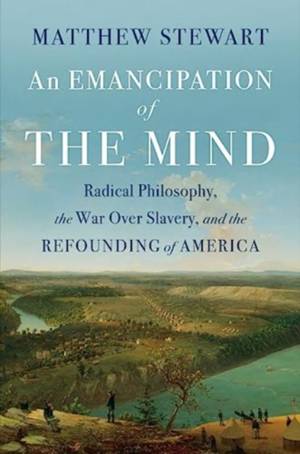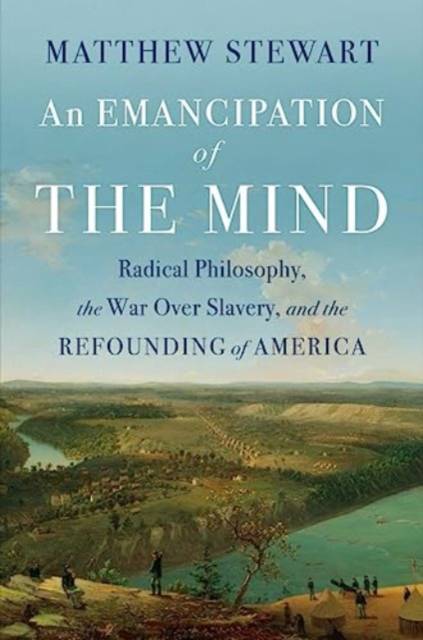
- Afhalen na 1 uur in een winkel met voorraad
- Gratis thuislevering in België vanaf € 30
- Ruim aanbod met 7 miljoen producten
- Afhalen na 1 uur in een winkel met voorraad
- Gratis thuislevering in België vanaf € 30
- Ruim aanbod met 7 miljoen producten
An Emancipation of the Mind
Radical Philosophy, the War Over Slavery, and the Refounding of America
Matthew StewartOmschrijving
This is a story about a dangerous idea--one which ignited revolutions in America, France, and Haiti; burst across Europe in the revolutions of 1848; and returned to inflame a new generation of intellectuals to lead the abolition movement--the idea that all men are created equal.
In their struggle against the slaveholding oligarchy of their time, America's antislavery leaders found their way back to the rationalist, secularist, and essentially atheist inspiration for the first American Revolution. Frederick Douglass's unusual interest in radical German philosophers and Abraham Lincoln's buried allusions to the same thinkers are but a few of the clues that underlie this propulsive philosophical detective story. With fresh takes on forgotten thinkers like Theodore Parker, the excommunicated Unitarian minister who is the original source of some of Lincoln's most famous lines, and a feisty band of German refugees, philosopher and historian Matthew Stewart tells a vivid and piercing story of the battle between America's philosophical radicals and the conservative counterrevolution that swept the American republic in the first decades of its existence and persists in new forms up to the present day. In exposing the role of Christian nationalism and the collusion between northern economic elites and slaveholding oligarchs, An Emancipation of the Mind demands a significant revision in our understanding of the origins and meaning of the struggle over slavery in America--and offers a fresh perspective on struggles between democracy and elite power today.
Specificaties
Betrokkenen
- Auteur(s):
- Uitgeverij:
Inhoud
- Aantal bladzijden:
- 400
- Taal:
- Engels
Eigenschappen
- Productcode (EAN):
- 9781324003625
- Verschijningsdatum:
- 26/03/2024
- Uitvoering:
- Hardcover
- Formaat:
- Genaaid
- Afmetingen:
- 154 mm x 252 mm
- Gewicht:
- 657 g

Alleen bij Standaard Boekhandel
Beoordelingen
We publiceren alleen reviews die voldoen aan de voorwaarden voor reviews. Bekijk onze voorwaarden voor reviews.









